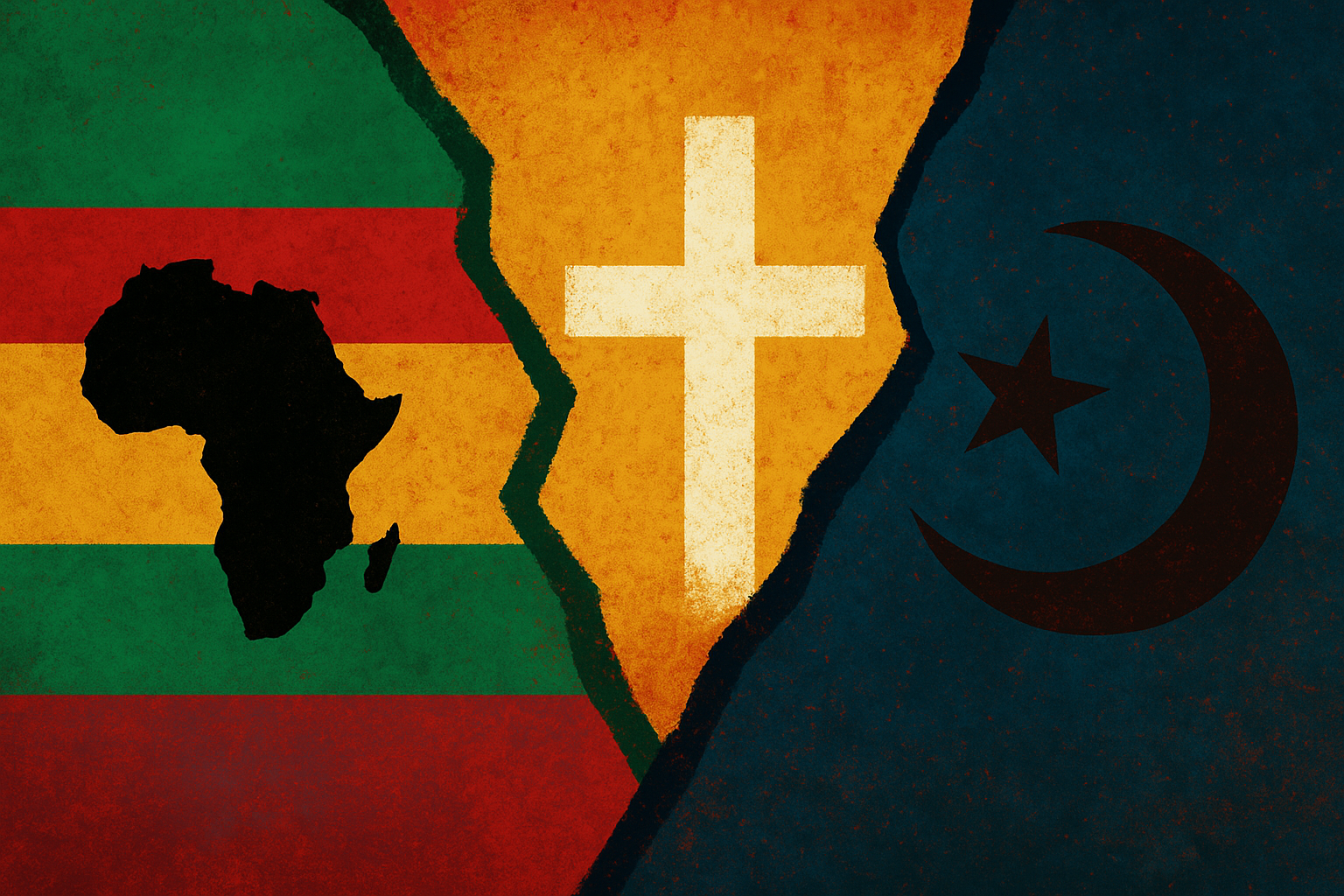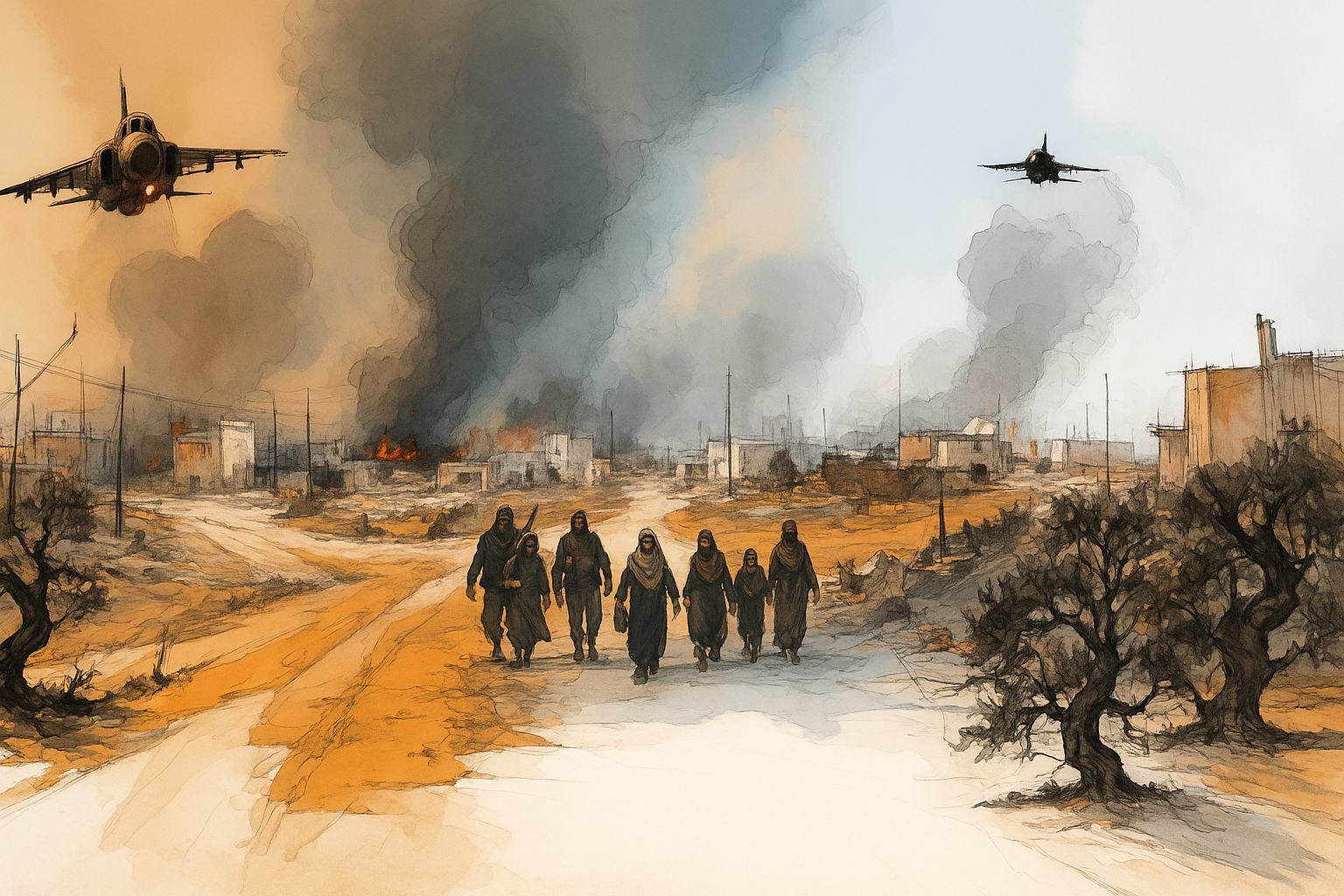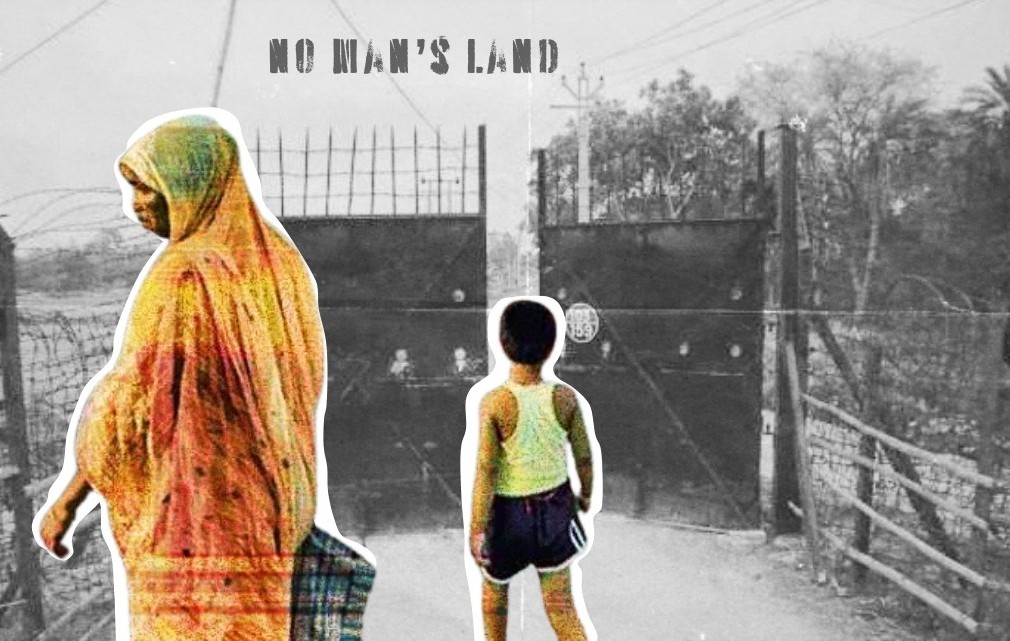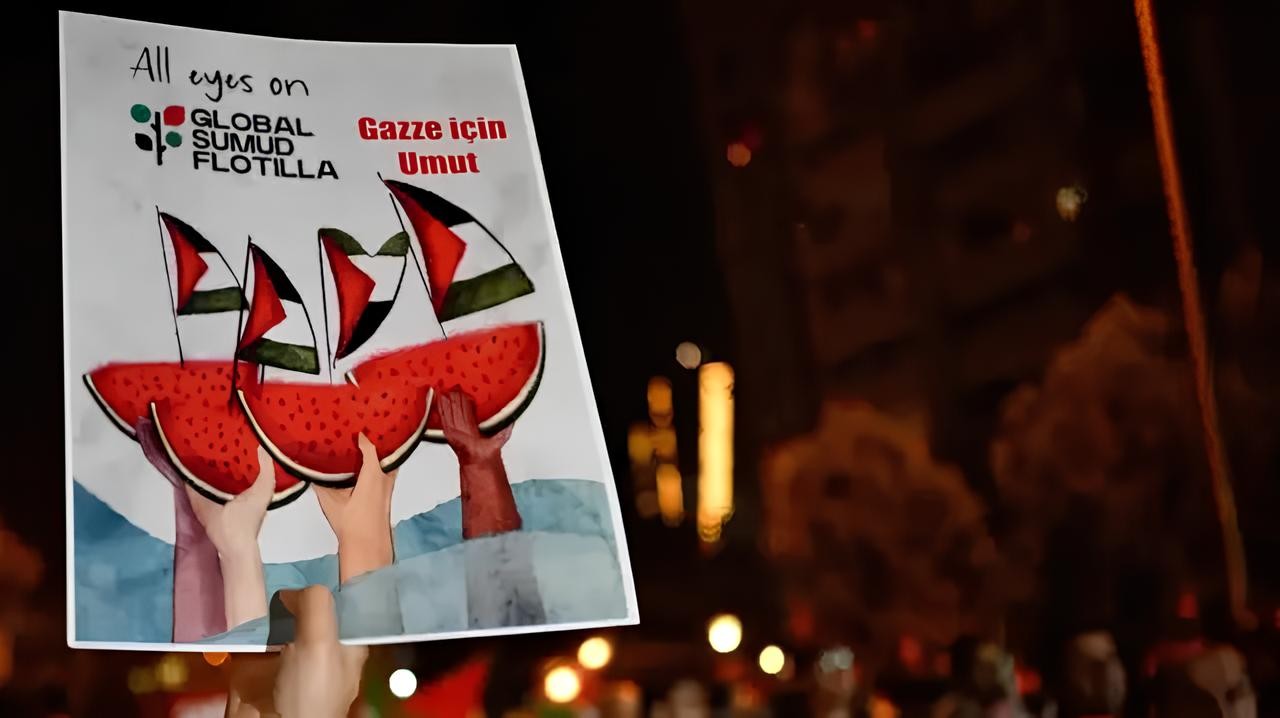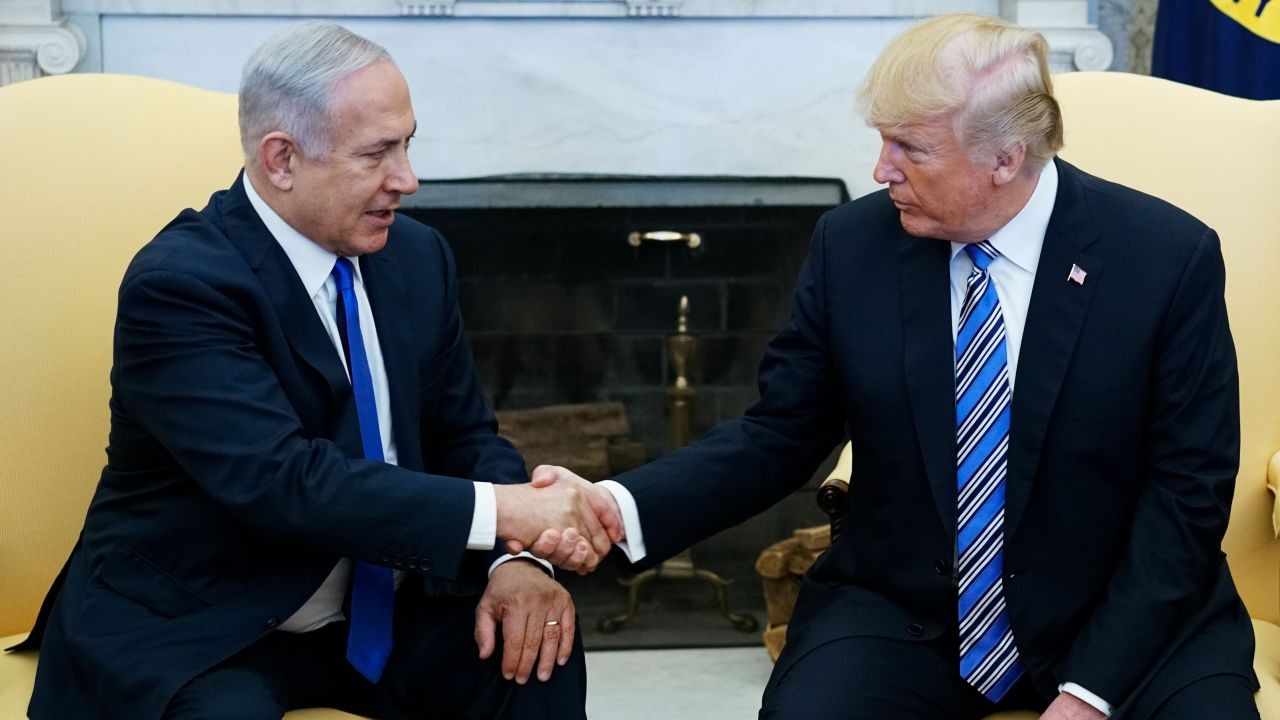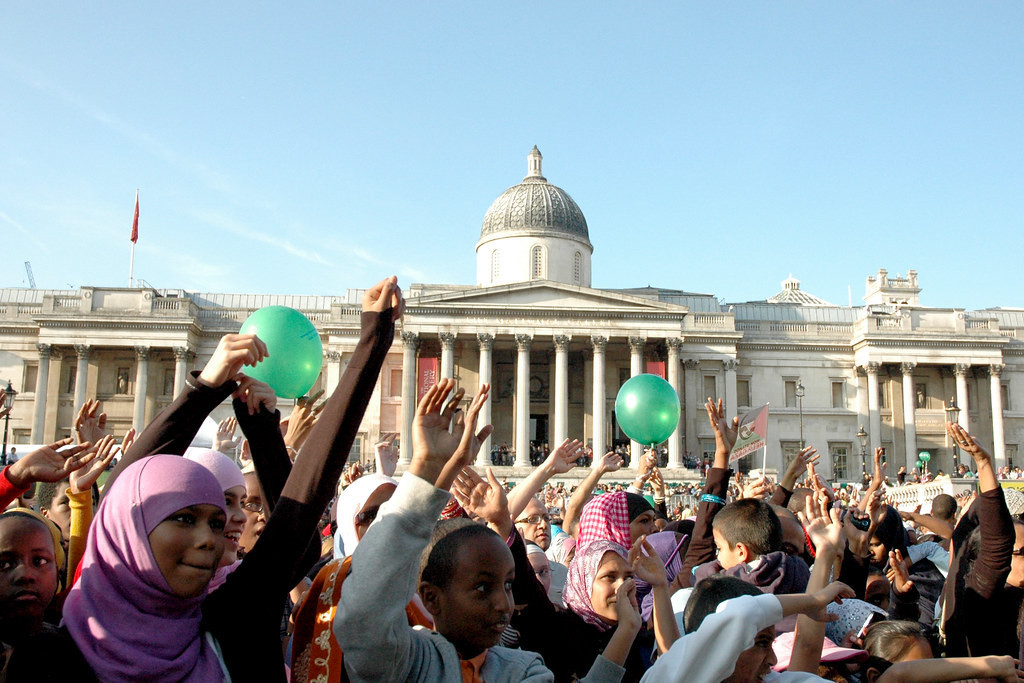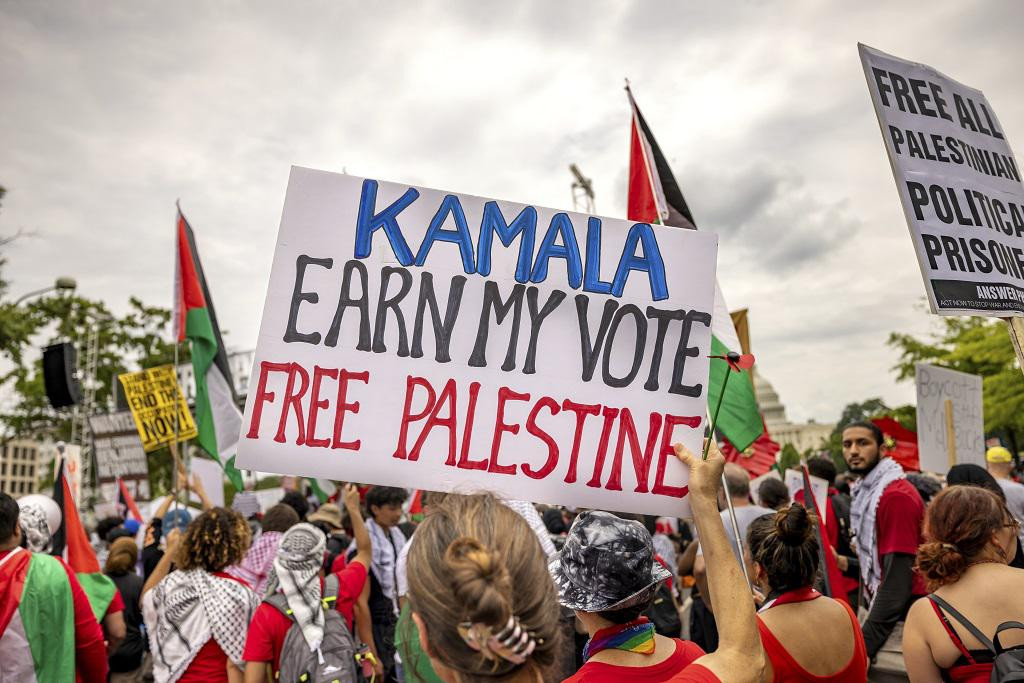
Making the World Safe for Women?: The Palestine Exception
In theory, militarism and the indiscriminate killing of tens of thousands of civilians flout feminist principles that purport to advocate for the rights of women and children in particular. Nearly a year of Israel’s genocidal war on Gaza -now extending into Lebanon- does, in fact, relegate the protection of women to (merely) “theory” with no practice. The neglect of Palestinian women and children's “suffering” (as US presidential candidate Kamala Harris understatedly put it) is staggering. In this brief article, I problematize the feminist/pro-woman declarations made in the 2024 Democratic National Convention, specifically in light of American policies toward Gaza. The instrumental versatility of liberal women's rights discourses, in this case, serves American imperialist (and pro-Zionist) stances through erasure. That is, it is striking that discussions of women’s rights abound in the US presidential race—just not the women of Gaza. Such deliberate neglect of the well-documented, highly publicized plight of Palestinian women reflects inconsistencies in US foreign policy discourse and practices generally. My focus here is on women’s rights in particular.
Women and US Foreign Policy
The argument that American-funded and -supported wars in the Middle East violate declared norms of human rights and women’s rights is not earth-shattering. We all recall the distorted claims to protect Afghan women from the Taliban as a justification for the US invasion in 2001 (Abu-Lughod, 2002). This same determination to “save” Muslim women in Iraq, then Afghanistan, more recently as the Taliban has risen to power once again, is inverted when it comes to Palestine. Over twenty years later, it remains important to delve into such untenable discrepancies between US proclamations and its actual policies. The difference now seems to be a decided neglect of some women’s rights (i.e., Palestinian women) by American politicians. Paradoxically, women's empowerment has become a centerpiece of US civil society support and assistance policies in the Middle East and North Africa. For the foreseeable future, issues of women’s rights and gender equality are here to stay.
Such deliberate neglect of the well-documented, highly publicized plight of Palestinian women reflects inconsistencies in US foreign policy discourse and practices generally.
In addition to the tens of thousands killed, the million or more displaced and starved, their homes, hospitals, schools, and universities destroyed, the political impact of the war in Gaza cannot be overstated. The war debunks myths regarding America’s safeguarding of the rules-based international order (Sadiki, 2024). The narrative of American commitment to women’s rights has, too, been blown apart. As UN Women Special Representative in Palestine Maryse Guimond stated in July, “There are no safe places to be a woman in Gaza” (UN Women, 2024). It could be argued that the US does not purport to champion women’s rights as a main policy priority. Unlike Sweden (previously), Canada, France, and other states, the US has not declared itself a party to the so-called “Feminist Foreign Policy (FFP).” It has not pledged to prioritize the rights, representation, and resources ensuring gender equality. (That would be too great an inconsistency for the world’s largest military power.) Thus, unlike its allies France, Germany, and Canada, the US cannot be said to have violated tenets of FFP as such in the decisive case of Gaza (Saleh, 2024).
At the same time, the US claims to be a leading force for advancing the roles and rights of women across the globe. American agencies, from the National Endowment for Democracy to the US Agency for International Development (USAID), identify gender equality as a programming component. USAID even has a “Gender Equality and Women’s Empowerment Policy” since 2023 that, among other things, aims “to eliminate Gender Based Violence (GBV)” around the world (USAID, 2023). The silence of American officials on Palestinian women is thus remarkable. A stark contrast has emerged between pointed American emphasis on supporting the women of Ukraine, Afghanistan, and even more recently Sudan, for instance, by Secretary of State Antony Blinken himself (US Department of State 2024).
Women and the (2024) Vote
At the domestic level, too, some aspects of some women’s rights continue to dominate US political discourse, especially during this campaign season. In addition to the grueling war in Gaza, for weeks in July, one big story in American (and global) media was how President Joe Biden relented to the pressure urging him to bow out of the presidential race. The eventual nomination of his female Vice President, Kamala Harris, catapulted gender equality to the forefront of media attention. Her campaign has seized on this aspirational “first” of a female presidency, more possible than before after Hillary Clinton’s loss to Donald Trump in 2016.
Hence, it has been no surprise that in Harris’s race against Donald Trump, the Republic candidate being legally prosecuted for not just withholding of documents, fraud, but also sexual assault (Graham, 2024), her campaign has chosen to stress an uplifting message of female empowerment at long, hard-earned last. Viewers watching the 2024 Democratic National Convention (DNC) might think that the Democratic Party and the Biden administration revere mothers and champion women. Angling at the female vote, speakers from Hillary Clinton to Oprah Winfrey to Kamala Harris herself (PBS, 2024) hit on unmistakably feminist themes. Their tearfully told stories underscored the foundational influence of mothers, the historical struggles of suffragists, the tribulations of desegregating education, the cliched “glass ceiling,” and the sanctity of bodily autonomy.
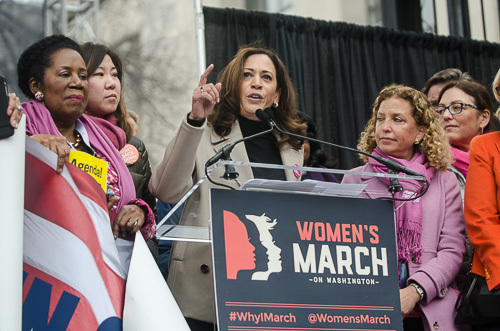
Nearly 11 months into Israel's “war on children” and onslaught on mothers, this long litany of American tributes to woman trailblazers and this preoccupation with female reproductive rights are particularly jarring. A party seeking to combat autocracy, model American democracy, and uphold freedoms at home and abroad actually flaunts immovable contradictions. However, these inconsistencies are not new. Over a century ago, notable American suffragists fought not just for women’s enfranchisement but also against militarism, all while invoking motherhood and the protection of children. However, the US women's suffrage movement of the first wave of American feminism in the late 19th and early 20th centuries was far from inclusive and egalitarian. The movement that achieved success in the 19th Amendment of 1920 was fraught with anti-black and anti-immigrant racism (Watkins, 2016). Clinton’s comments suggest that at least for political party elites, the legacy of selective concern, this time internationalized to (not) include Arab/Muslim or Palestinian women, lives on.
Democratic National Convention speakers and supporters remarkably insisted a Harris administration would write a “new chapter” in the US's fight against tyranny. Liberal feminist discourse through the mouths of the conventions' speakers, however, reinforced a set of (illiberal) principles and practices: exclusion, dehumanization, and unbridled violence. Hillary Clinton invoked her Chicago-born mother, Dorothy, who came into a world where women were still prohibited from voting. Over the past 104 years, “every generation has carried the torch forward,” she intoned. Now, “the future is here” with Kamala Harris poised to become President (TIME, 2024a)! However, this “future” does not include rights for all human beings, all women. The same politician who memorably proclaimed back in 1994 that “women’s rights are human rights” overlooks the plight of women under bombardment by Israel with American-made bombs. Clinton's human rights and women's rights are glaringly absent in Israel's US-backed war.
A celebration of mothers -former President Obama's grandmother, his mother-in-law, Michelle Obama as mother, and Kamala Harris's own mother- was a major theme of Barack and Michelle Obama's back-to-back speeches. "A tribute to her mother, to my mother and your mother, too." declared Michelle Obama to audience members and viewers (Obama, 2024). Media mogul-turned-political campaigner Oprah Winfrey joined the same pro-woman chorus. She stressed that Kamala Harris, unlike her rival, would guarantee women’s freedom over their bodies, intimately linked to a foundational national myth in the US. “Because if you don’t have autonomy over this…there is no American dream,” she said dramatically, pausing mid-sentence and gesturing to her own form (TIME, 2024b). However, such autonomy does not register in consideration of Palestinian women, even in agencies such as USAID. One employee who prepared a presentation about pregnant women’s starvation in Gaza was subsequently fired (Musgrave, 2024). Critical analysis made by development bureaucrats themselves is not acceptable when it identifies Israeli culpability in humanitarian violations against women specifically.
Nearly 11 months into Israel's “war on children” and onslaught on mothers, this long litany of American tributes to woman trailblazers and this preoccupation with female reproductive rights are particularly jarring.
Where are the (Palestinian) Women?
The rallying cry of women’s “autonomy” over their bodies may win votes in the US, but it seems irrelevant when it comes to Palestine. Even what Serene Khader (2018) calls Western “missionary feminism” that justifies imperial interventions selectively un-sees (Palestinian) women altogether. Expressing the primacy of core US interests in the Middle East through a showstopping, Hollywood-style performance, the DNC was a reminder of the insidious power of “gender mainstreaming.” This approach, spearheaded in the 1990s by the UN, prescribes simply inserting women into existing policy processes and actions as a remedy for gender-based exclusion and discrimination. This same top-down approach has become a cornerstone of international democracy and development aid. Would not an American female president be a flashy achievement for gender mainstreaming writ large?
To an extent, US official discourse mirrors the global parlance and policies of women’s empowerment rooted in the women, peace, and security (WPS) agenda aimed at greater inclusion of women in conflict situations. However, even this limited agenda, which is far from radical and does not dare to challenge the structural inequalities of imperialism, neoliberalism, and authoritarianism, is not taken seriously when it comes to Palestine and other Arab settings. A recent report by international experts concludes that the United Nations Security Council's "commitment to the implementation of its WPS agenda is conspicuously lacking," especially in Gaza, Sudan, and Yemen, among other locales (UKRI GCRF, 2024, p. 59). The Democratic National Convention, whose nominee is part of the current US administration overseeing a genocide in Gaza, disseminated a message in line with this conception of gender equality that is achievable by minimal change at the top. Add a woman to the helm of an imperialist hegemonic power enabling genocide and proclaim that women’s liberation has been achieved. Democratic norms espoused by the US, including gender equality, are more dubious than ever before.
Gender quality may be a buzzword in US and international politics, but after Gaza, it is clearer than ever that basic rights of any kind, let alone self-determination, are not on the American agenda when it comes to Palestine.
All this is not an intent to side with one party over the other in US politics. Suspense builds, and it is difficult to predict which candidate will win in this tight presidential race. The point here has been to succinctly demonstrate the inconsistencies of the political rhetoric of a US administration. Contradictions, in this case, abound in declared commitments and actual policies regarding women’s rights that must, after all, begin with the right to life and the right to give birth safely. Gender quality may be a buzzword in US and international politics, but after Gaza, it is clearer than ever that basic rights of any kind, let alone self-determination, are not on the American agenda when it comes to Palestine. The hollowness of women’s rights rhetoric—not unlike that of democracy promotion—rings far beyond this horrifying, unprecedented war. As the flames of American-armed war engulf the region, political and civil society across the entire Middle East should take heed.
References
Abu-Lughod, L. (2002). "Do Muslim Women Really Need Saving? Anthropological Reflections on Cultural Relativism and its Others." American Anthropologist, 104(3): 783–790.
Graham, D. A. (2024, September 13). "The Cases Against Trump: A Guide." The Atlantic. https://www.theatlantic.com/ideas/archive/2024/09/donald-trump-legal-cases-charges/675531/
Khader, Serene J. 2018. Decolonizing Universalism: A Transnational Feminist Ethic. Oxford: Oxford University Press.
Musgrave, S. (2024, May 31). "He Made a Powerpoint on Mothers Starving in Gaza. Then He Lost His Government Job." The Intercept. https://theintercept.com/2024/05/31/usaid-powerpoint-gaza-israel-resign/
Obama, B. (2024, August 21). "Our Remarks at the 2024 Democratic National Convention." Medium. https://barackobama.medium.com/our-remarks-at-the-2024-democratic-national-convention-4b1f8a9dce8c
PBS. (2024, August 23). "Read Kamala Harris' Full Speech at the Democratic National Convention." https://www.pbs.org/newshour/politics/read-kamala-harris-full-speech-at-the-democratic-national-convention-2
Sadiki, L. (2024, September 9). "The Gaza War...Is Not Taking Place?" Aljazeera Centre for Studies. https://studies.aljazeera.net/en/analyses/gaza-war%E2%80%A6-not-taking-place
Saleh, L. (2024, January 16). "Palestine: A 'Test' for Feminist Foreign Policy." LSE Engenderings Blog. https://blogs.lse.ac.uk/gender/2024/01/16/palestine-a-test-for-feminist-foreign-policy/
The UKRI GCRF Gender, Justice and Security Hub. 2024. Gender, Justice and Security: Structural Challenges, Feminist Innovations and Radical Futures. https://thegenderhub.com/wp-content/uploads/2024/08/GJS-Report-1.pdf
TIME. (2024a, August 20). "The Full Speech Hillary Clinton Gave at the 2024 Democratic National Convention." https://time.com/7012534/read-hillary-clinton-2024-dnc-speech-full-transcript/
TIME. 2024b. "Read Oprah Winfrey's Full 2024 Democratic National Convention Speech. https://time.com/7013825/read-oprah-winfrey-2024-dnc-speech-full-transcript/
UN Women. (2024, July 18). “Press Briefing: Media briefing at the United Nations Headquarters by Maryse Guimond.” https://www.unwomen.org/en/news-stories/press-briefing/2024/07/media-briefing-at-the-united-nations-headquarters-by-maryse-guimond-un-women-special-representative-in-palestine-about-her-visit-to-gaza
USAID. (2023). “2023 Gender Equality and Women’s Empowerment Policy.” https://www.usaid.gov/gender-policy
US Department of State. (2024, July 9). "Secretary of State Antony J. Blinken at the NATO Women, Peace, and Security Reception." https://www.state.gov/secretary-antony-j-blinken-at-the-nato-women-peace-and-security-reception/
Watkins, V. (2016). "Votes for Women: Race, Gender, and W.E.B. Du Bois's Advocacy of Woman Suffrage." Phylon 53(2): 3–19.
Layla Saleh
Dr. Layla Saleh specializes in Arab politics, protest, and democratization. Her latest book is the co-authored Revolution and Democracy in Tunisia: A Century of Protestscapes. She is currently a Research Fellow at the Graduate School of Humanities an...
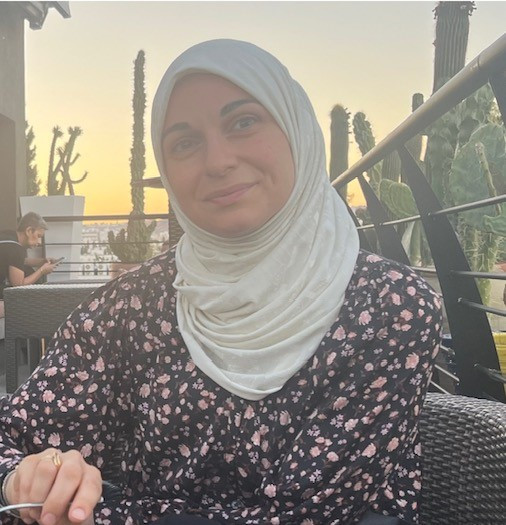 Layla Saleh
Layla Saleh